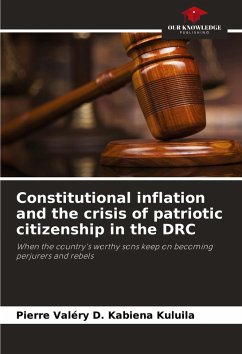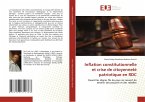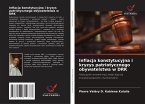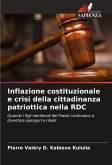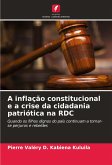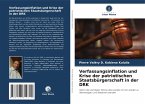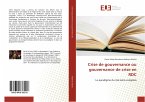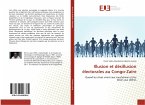The overproduction of constitutional texts in Congo-Zaïre is a sign not only of ideological inconstancy and political groping - often coupled with blind mimicry - but also and above all of the crisis of citizenship and authentic patriotism, such that pseudo-patriotic citizens, or better still predatocratic Zaïro-Congolese citizens of all stripes and backgrounds, whenever they have the opportunity, proceed much more on the basis of patrimonialist and segregationist logic than of a serious attachment to republican and democratic values and virtues. For this type of socio-political actor, Congo-Zaïre is a patrimony, a conquered land or a preserve that they would like to manage without sharing, even if the real problems of the Zaïro-Congolese nation remain unresolved. The embezzlement of public funds, the plundering of state assets, the flight of capital abroad and widespread impunity through discriminatory, tailor-made laws and judicial procedures serve as the basis for any comprador governance they establish to the detriment of the popular masses.
Bitte wählen Sie Ihr Anliegen aus.
Rechnungen
Retourenschein anfordern
Bestellstatus
Storno

